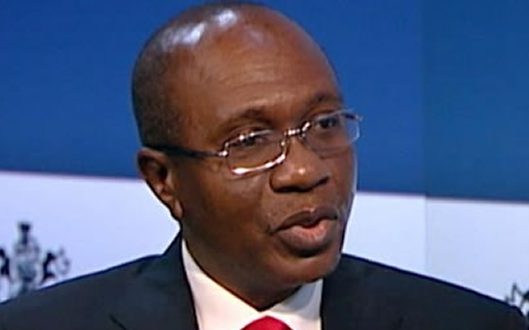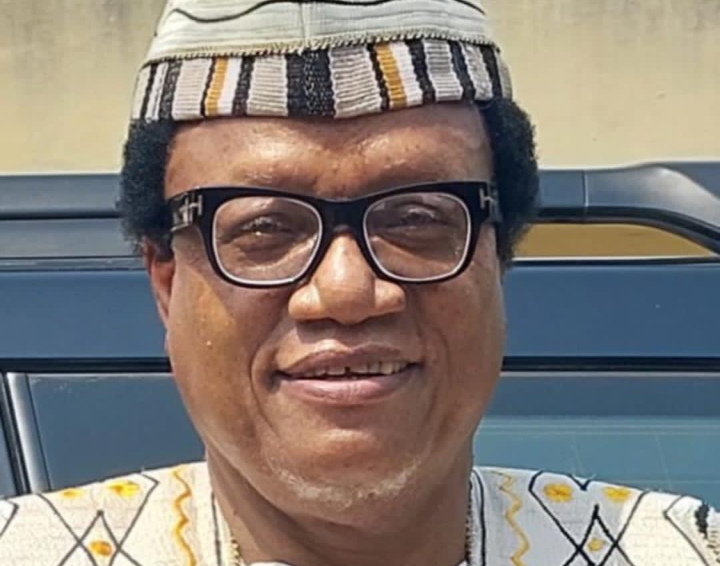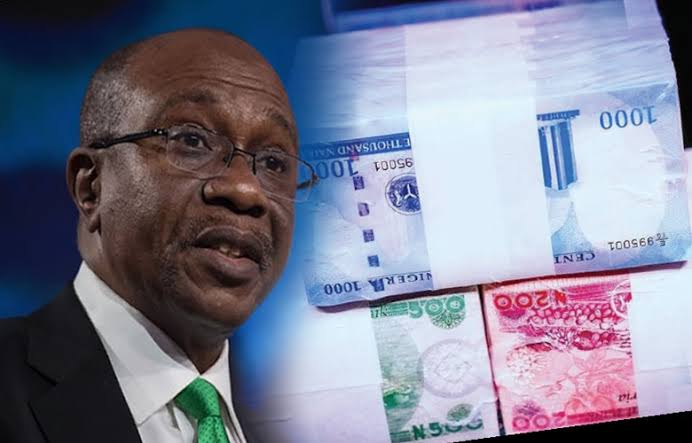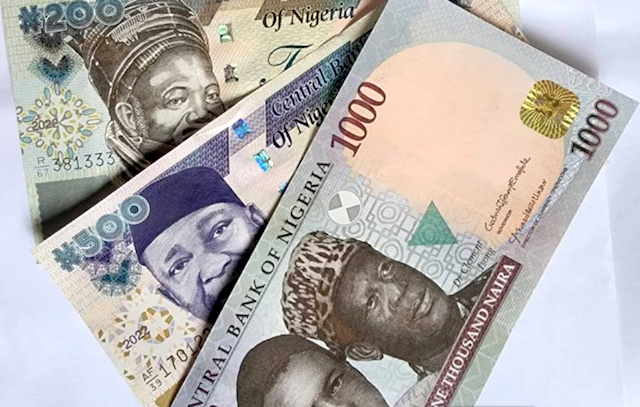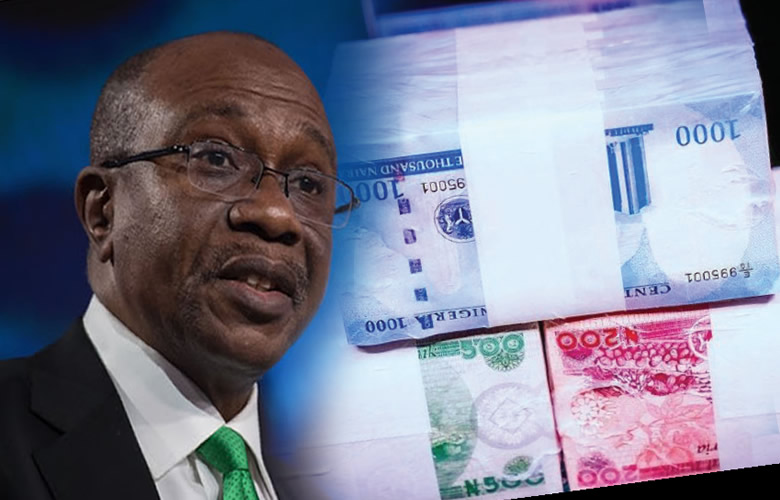The Central Bank of Nigeria (CBN) has disclosed measures emplaced to achieve the effective distribution of new Naira notes.
TheNewsGuru.com (TNG) reports CBN Governor, Mr Godwin Emefiele disclosed the measures on Sunday in a statement extending deadline to phase out old Naira notes from circulation.
A 10-day extension of the deadline from January 31, 2023, to February 10, 2023 was approved by President Muhammadu Buhari to allow for collection of more old notes legitimately held by Nigerians.
Also, a 7-day grace period, beginning on February 10 to February 17,2023, in compliance with Sections 20(3) and 22 of the CBN Act was approved as well to allow Nigerians to deposit their old notes at the CBN after the February deadline when the old notes would have lost Legal Tender status.
On measures to achieve effective distribution of the new notes, Emefiele disclosed the CBN “held several meetings with our Deposit Money Banks (DMBS) and provided them with Guidance Notes on processes they must adopt in the collection of old notes and distribution of the New Notes to all Nigerians. These includes specific directives to DMBS to load new notes into their ATMs nationwide to ensure an equitable / transparent mechanism for the distribution of the new notes to all Nigerians.
“We commenced a nationwide sensitization through the Print and electronic media to create an awareness on the redesigned notes to Nigerians including collaboration with the National Orientation agency to reach all Nigerians across multiple channels.
“We deployed 30,000 Super Agents nationwide to assist in our Cash Swap initiative in the hinterlands, rural areas, and regions underserved by banks in the Country to ensure that the weak and vulnerable ones amongst us can swap/ exchange their old notes.
“We deployed all our staff, particularly the Assistant Directors, Deputy Directors and Directors in Abuja to proceed to all CBN branches Nationwide to join the join the mass mobilization campaign and monitoring programs, working with the Deposit Money Banks, agents and our Branch controllers across the 36 states of the Federation. This is meant to ensure compliance with all our guidelines already issued for smooth implementation of the program.
“Although we have received some reports of breaches by some bank branches, we have agreed with Executive Chairmen of the EFCC and ICPC to assist us, by sending their staff to all CBN and DMB branches nationwide to join in monitoring the implementation of these guidelines. The aim is to ensure compliance with the laid down guidelines.
“We are happy that so far, the exercise has achieved a success rate of over 75 percent of the N2.7 trillion held outside the banking system. Nigerians in the rural areas, villages, the aged and vulnerable have had the opportunity to swap their old notes; leveraging the Agent Naira Swap initiative as well as the CBN Senior staff nationwide sensitization team exercise.
“Aside from those holding illicit/ stolen Naira in their homes for speculative purposes, we do aim to give all Nigerians that have Naira legitimately earned and trapped, the opportunity to deposit their legitimately trapped monies at the CBN for exchange”.
According to the CBN Governor, data show that in 2015, Currency -in- Circulation was only N1.4 trillion and that as of October 2022, currency in circulation had risen to N3.23 trillion; out of which only N500 billion was within the Banking Industry and N2.7 trillion held permanently in people’s homes.
“Ordinarily, when CBN releases currency into circulation, it is meant to be used and after effluxion of time, it returns to the CBN thereby keeping the volume of currency in circulation under the firm control of the CBN.
“So far and since the commencement of this program, we have collected about N1.9 trillion; leaving us with about N900 billion (N500b+ N1.9trillion),” the statement reads.
Read full statement below:
PRESS STATEMENT BY GODWIN EMEFIELE GOVERNOR, CENTRAL BANK OF NIGERIA JANUARY 29, 2023 ON PROGRESS OF IMPLEMENTATIONOF NEW REDESIGNED CURRENCY BY THE CENTRAL BANK OF NIGERIA.
1. Good afternoon, ladies and Gentlemen. Like you can see, I’ve just ended a meeting with Mr President. The purpose of the meeting is to provide Mr President with updates about the implementation status of the CBN currency redesign program currently going on across the Federation.
2. First, I’d like to continue to thank Mr president for giving the CBN the approval to embark on this ambitious program because, like I had said in the past, the Central Bank of Nigeria hasn’t had the opportunity to embark on such currency redesign program in last 19 years and indeed, let me emphasize that only an incorruptible leader of the President’s stature can give such approval to the CBN.
3. Ladies and Gentlemen, from the on-set of this currency redesign program, we made it clear that for 19 the CBN hasn’t been able to conduct this important aspect of its mandate, whereas this should normally have been be done within a 5-8 years window.
4. Our aim is mainly to make our Monetary Policy Decisions more efficacious and like you can see; we’ve started to see inflation trending downwards and exchange rates relatively stable. Secondly, we aim to support the efforts of our Security agencies in combating Banditry and Ransom taking in Nigeria through this program and we can see that the Military are making good progress in this important task in Nigeria.
5. Ladies and Gentlemen, available data at the Central Bank of Nigeria has shown that in 2015, Currency -in- Circulation was only N1.4 trillion. As at October 2022, currency in circulation had risen to N3.23 trillion; out of which only N500 billion was within the Banking Industry and N2.7 trillion held permanently in people’s homes. Ordinarily, when CBN releases currency into circulation, it is meant to be used and after effluxion of time, it returns to the CBN thereby keeping the volume of currency in circulation under the firm control of the CBN.
6. So far and since the commencement of this program, we have collected about N1.9 trillion; leaving us with about N900 billion (N500b+ N1.9trillion). To achieve effective distribution, of the new currency the CBN has taken the following steps:
a. We held several meetings with our Deposit Money Banks (DMBS) and provided them with Guidance Notes on processes they must adopt in the collection of old notes and distribution of the New Notes to all Nigerians. These includes specific directives to DMBS to load new notes into their ATMs nationwide to ensure an equitable / transparent mechanism for the distribution of the new notes to all Nigerians.
b. We commenced a nationwide sensitization through the Print and electronic media to create an awareness on the redesigned notes to Nigerians including collaboration with the National Orientation agency to reach all Nigerians across multiple channels.
c. We deployed 30,000 Super Agents nationwide to assist in our Cash Swap initiative in the hinterlands, rural areas, and regions underserved by banks in the Country to ensure that the weak and vulnerable ones amongst us can swap/ exchange their old notes.
d. We deployed all our staff, particularly the Assistant Directors, Deputy Directors and Directors in Abuja to proceed to all CBN branches Nationwide to join the join the mass mobilization campaign and monitoring programs, working with the Deposit Money Banks, agents and our Branch controllers across the 36 states of the Federation. This is meant to ensure compliance with all our guidelines already issued for smooth implementation of the program. Although we have received some reports of breaches by some bank branches, we have agreed with Executive Chairmen of the EFCC and ICPC to assist us, by sending their staff to all CBN and DMB branches nationwide to join in monitoring the implementation of these guidelines. The aim is to ensure compliance with the laid down guidelines.
e. We are happy that so far, the exercise has achieved a success rate of over 75 percent of the N2.7 trillion held outside the banking system. Nigerians in the rural areas, villages, the aged and vulnerable have had the opportunity to swap their old notes; leveraging the Agent Naira Swap initiative as well as the CBN Senior staff nationwide sensitization team exercise.
f. Aside from those holding illicit/ stolen Naira in their homes for speculative purposes, we do aim to give all Nigerians that have Naira legitimately earned and trapped, the opportunity to deposit their legitimately trapped monies at the CBN for exchange.
7. Based on the foregoing, we have sought and obtained Mr President’s approval for the following:
i. A 10-day extension of the deadline from January 31, 2023, to February 10, 2023; to allow for collection of more old notes legitimately held by Nigerians and achieve more success in cash swap in our rural communities after which all old notes outside the CBN losses their Legal tender Status. Our CBN staff currently on mass mobilization and monitoring together with officials of the EFCC and ICPC will work together to achieve these objectives.
ii. A 7-day grace period, beginning on February 10 to February 17,2023, in compliance with Sections 20(3) and 22 of the CBN Act allowing Nigerians to deposit their old notes at the CBN after the February deadline when the old currency would have lost its Legal Tender status.
We therefore appeal to all Nigerians to work with the Central Bank of Nigeria to ensure a hitch free process for the implementation of this very important program. Thank you.
GODWIN T. EMEFIELE
GOVERNOR CENTRAL BANK OF NIGERIA
